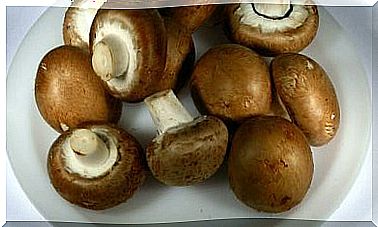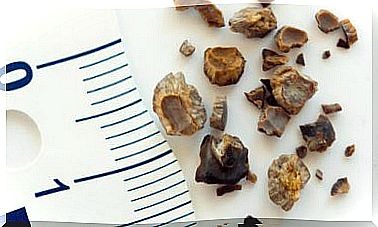What Can I Take To Regulate Menstruation?
When it comes to thinking about foods that can be taken to regulate menstruation, there are a number of dietary strategies that exist to consider. Diet has a decisive influence on many aspects of human physiology, so the establishment of regular hormonal cycles does not escape this.
Menstruation can sometimes be an indicator of a woman’s nutritional status. A situation of malnutrition is usually settled with the appearance of amenorrhea (lack of periods), which leads to the absence of ovulation until the nutrient requirements are satisfied.
At the same time, the fact of including unhealthy foods in the diet can lead to increased pain and bleeding each month. Next we are going to tell you what you can take to regulate menstruation and stop suffering from problems related to this cycle.
To regulate menstruation consume more unsaturated fats
Fats are essential and necessary macronutrients in the diet. Not all of them have the same nutritional quality, but those of an unsaturated nature are capable of influencing hormonal cycles for good.
In addition, they regulate inflammation in the body. According to research published in the journal Nutrients , caloric restriction from deprivation in fat consumption can trigger irregularities in the menstrual cycle, and even the disappearance of it.
To guarantee the adequate consumption of unsaturated fats, it is necessary that foods such as oily fish, raw vegetable oils and even nuts appear in the usual diet. In this way, nutrients from the omega 3 series and the omega 6 series will be provided in the appropriate proportions.
This balance will help maintain hormonal secretion processes. Let us bear in mind that a large part of the internal substances involved in the rule have chemical nuclei linked to lipids in their composition.

Restricting trans fats helps regulate menstruation
In the same way that we have told you that unsaturated fats are beneficial for health and for regulating the menstrual cycle, those of the trans type are harmful. These lipids are obtained from subjecting the rest of the fatty acids available in nature to conditions of high temperatures.
From its manufacturing process, a series of compounds are generated that have a marked inflammatory character, as affirmed by experts in nutrition. So much so that incorporating them and taking them to regulate menstruation would be a mistake in women with a tendency to have spaced periods or, on the contrary, too frequent.
For this reason, the regular consumption of fried and battered foods is capable of generating an imbalance in the endocrine processes that can be settled with the appearance of irregular menstrual cycles. The ultra-processed products that we buy in the supermarket represent the most accessible and tempting option to fail in this choice.
This consequence occurs much more markedly in the case of women suffering from polycystic ovary syndrome. In these cases, there is a predisposition to irregularity in the period due to ovarian malformations.
Eat more olives to have regular cycles
To optimize the supply of unsaturated fats, good for health, it is positive to increase the intake of olives. Both the fruit and its oil are characterized by the presence of omega 3 fatty acids, which is why they will favor the appearance of regular cycles.
In the event that you opt for oil consumption, you need to look at the labeling. Always choose those varieties of extra virgin olive oil that have not been partially refined. This product is obtained by pressing the olive, without subjecting the fruit to thermal processes that could damage its nutritional value.
When consuming olive oil, remember that the preference is its raw intake, because in this way all its characteristics are kept intact. In the case of subjecting it to frying, the presence of trans-type fatty acids will increase, which will be detrimental if we want to take it to regulate menstruation.

Eat healthy foods to regulate menstruation
Irregularities in the menstrual cycle can be motivated, on many occasions, by dietary problems, although there is usually a certain genetic predisposition or pathological hormonal changes. The combination of nutrition and exercise is key to understanding the problem, as highlighted by some studies.
The fact of not ingesting the necessary energy, or of not providing essential fatty acids in adequate amounts, can cause the disappearance of the menstrual cycle. This process is known as amenorrhea.
We advise you to increase the consumption of unsaturated fatty acids through foods such as oily fish, raw vegetable oils and oily fruits. In the same way, it is always positive to reduce the presence of trans-type lipids in the diet. These promote inflammatory states and help break hormonal balances.
If you have any further questions, consult a nutrition professional. In the event that you put these tips into practice and continue to experience irregularities in the menstrual cycle, go to a specialist to further assess the disorder.









